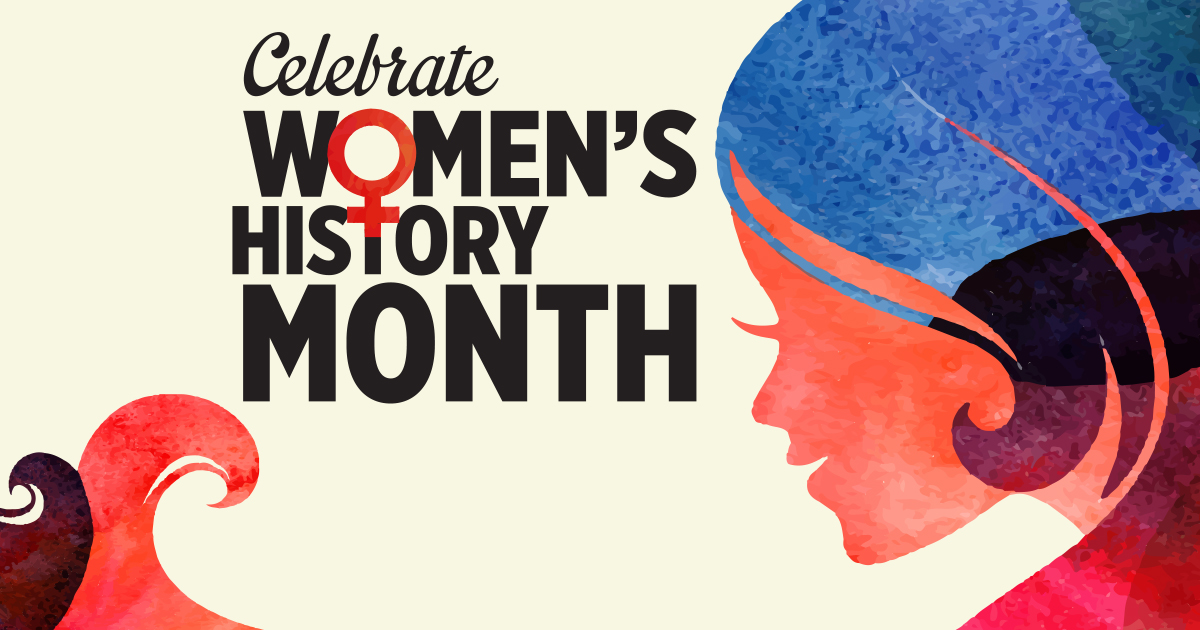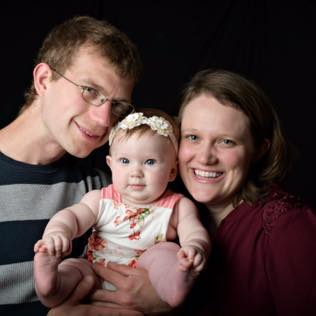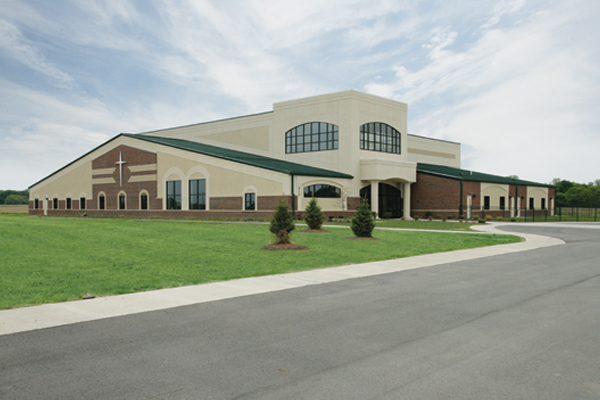This post is part four of a five-part series. Parts two-five will be published on our blog. Part one can be viewed at https://www.facebook.com/BrethrenLifeAndThought/videos/1430331587076140/.
CP: Introduce yourself. Location. Current Congregation. (If not currently at a Brethren congregation, where do you worship now? What is your “home” CoB?) Occupation. Age. Did you know March is Women’s Month? Either way, what does Women’s Month mean to you? How do you understand your identity as a minister (priesthood of all believers)?
BL: Brittany Lutz – currently located in Lynchburg Virginia and in between “Home” churches due to our move within the last year. I grew up in Eaton church of the brethren in Eaton, OH. I’m currently working from home in the developmental disabilities field but will soon be a stay at home mom. Yes, I was aware that March is Women’s month. Historically I can appreciate those who have gone before and paved the way for “equal” rights. However, I feel current day movements that focus on things like “Women’s month” more often than not, have taken it to the extreme. Such as wanting to be “better” or more important than men. I do not agree with this as I know we all have our differences and strengths. Each meant to compliment the other when each side is given the appropriate opportunity to do so. My identity in ministering comes from the charges given to us as believers from the Word of God. Thankfully, I was raised with this perspective and it has made it easier for me to pushed aside other expectations outside of those forces in how I should or should not be ministering. We were all given the charge as believers to minister. Not just men. My role might look different at times than a man’s role but other times, it might be some of the very same acts.
CP: Is it odd to identify with a group that is centered on the male form of the name? In what ways does it matter? In what ways does it not matter?
BL: I could care less about the name personally as long as the teachings of the church line up biblically. However, those not familiar with the church might find it as a “turn off” limiting opportunities for outreach.
CP: What opportunities does being a Brethren woman provide you? Are there ways it restricts you?
BL: I think there were many opportunities for woman in our brethren church as far as getting involved, finding leadership roles, etc. This, of course, did not extend into pastorship roles. Those were clearly reserved for men even if it was not outright stated. I am personally week biblically in this area to say that is, in fact, God’s design or not. I do know there were times when he used women as leaders in the Bible when “people” would have never chosen a woman. I do understand and know that men are meant to be the head of the household so with this in mind it doesn’t necessarily “bother” me if I do not have a women pastor. Again, this is just me. I have never felt called to be a pastor so if I did, I would certainly feel differently. Another thing to consider is women who have been horribly mistreated by men, searching for a safe environment would probably be less likely to identify with a church that does not allow women pastors. Again, I need to do more biblically based research on this specific topic.
CP: Name a woman, Brethren or otherwise, who has inspired you and encouraged your spiritual growth.
BL: There have been many women who have done this in my life through our church but two who I am drawn to consistently for daily living examples are my mother and grandmother. Completely different personalities but both working to serve the Lord each day. My mother is a strong, outspoken, leader. My grandmother was much more gentle, but she was always willing to serve and one of the most gracious/caring people I knew. She was also strong in her own way that she would quietly take a stand behind the scenes when she did not agree.
CP: How can our denomination better encourage the gifts of women?
 BL: This needs to come straight from leadership. They need to make it clear that they will take the time to encourage and surround themselves with both men and women. I grew up in an environment at my church (mostly through my years as a youth) where my strengths were recognized and I was approached for involvement based on those, not my gender. There are times when gender matters but when it doesn’t, it should not be a reason for involvement/encouragement or the lack thereof.
BL: This needs to come straight from leadership. They need to make it clear that they will take the time to encourage and surround themselves with both men and women. I grew up in an environment at my church (mostly through my years as a youth) where my strengths were recognized and I was approached for involvement based on those, not my gender. There are times when gender matters but when it doesn’t, it should not be a reason for involvement/encouragement or the lack thereof.
CP: How do you sustain yourself in the midst of those who might discredit or not listen to your voice because you are a woman?
BL: Honestly, when I’m looked down upon because I’m a woman – I get an “I’m gonna prove you wrong” attitude. I sometimes have to reign this in so it does not hurt my end goal, but again, I was raised in a way that helps me to not let the attitudes of others set limits on my ambitions or what I feel like I’m called to be doing. God’s bigger than all of that so if I’m supposed to overcome something, I will with his strength and time.
CP: How do you encourage or build up other women? What are ways that we can intentionally mentor and call young women into ministry?
BL: I think taking the time to engage and listen to what is going on in their life goes a long way. When people do this for me, as a woman, it makes me feel like I matter and that people care. This also gives us the opportunity to speak truth into each other’s life when we are struggling to find it on our own. I think the biggest way to star at mentorship and calling women into ministry is simply by engagement. Leadership needs to publicly acknowledge that this is part of the church’s “goals” but engagement with people, in general, says “hey, you’re more than a number – you matter”. It opens the door to more possibilities for their involvement.
CP: How do you lovingly respond to prejudice in and outside the Church?
BL: I probably need to work on the “lovingly” part personally lol first of all and probably the most obvious is to put that situation in prayer. Sometimes what is needed is to step away from the situation after respectfully speaking your truth and allowing God to act. This might be painful for those involved but sometimes is what is needed. Another option is respectful but firm persistence. If someone is a believer and is ultimately open to truth but just being stubborn, there will be an opportunity to move forward in this area. Women who have persevered have ultimately brought to light their value to perhaps more than just who they originally intended to. It’s not easy or fun, but necessary at times.
CP: How do you set boundaries with physical touch with men (or others if not heterosexual)?
BL: Thankfully, I’ve been fortunate enough to not have to worry about this very often. I’ve often wondered about it because I have worked in and been in male-dominated environments so I’ve had discussions with those who knew me. They conveyed that I supposedly have this “Wall” of sorts that I put up to avoid situations. So, I think body language can be a big first step. If that doesn’t work, women should voice what they expect if anyone crosses a boundary they are not comfortable with. I know this is not always possible because of the dynamics of relationships. If this happens, I hope the women involved can seek out someone they are comfortable with you can help them through the process of setting better boundaries.
CP: You shared some demographic info in question one. Where does your sex or gender identity fit into the broader picture of who you are? Of your many identities, is being a woman primary? Why or why not?
 BL: I don’t really focus on my identity as a women when I am thinking about or comparing other identities in my life. I do think however, it is a big part of how I identify. In many situations I am going to identify differently than a male counterpart who has many of the same identities as myself. That is just how we are created as human beings. It’s going to give me different perspectives, feelings, emotions, etc. Beyond this, I wouldn’t say it’s something I give much intentional focus to. There are a few places in which I always have to focus on the fact that I am a women such as being a mom, wife, etc, but in general I want to connect with all people – who they are, where their at in life etc. so my identity as a women may or may not be a focus.
BL: I don’t really focus on my identity as a women when I am thinking about or comparing other identities in my life. I do think however, it is a big part of how I identify. In many situations I am going to identify differently than a male counterpart who has many of the same identities as myself. That is just how we are created as human beings. It’s going to give me different perspectives, feelings, emotions, etc. Beyond this, I wouldn’t say it’s something I give much intentional focus to. There are a few places in which I always have to focus on the fact that I am a women such as being a mom, wife, etc, but in general I want to connect with all people – who they are, where their at in life etc. so my identity as a women may or may not be a focus.
Image Credits: McKnight Group and Sassafras Marketing


